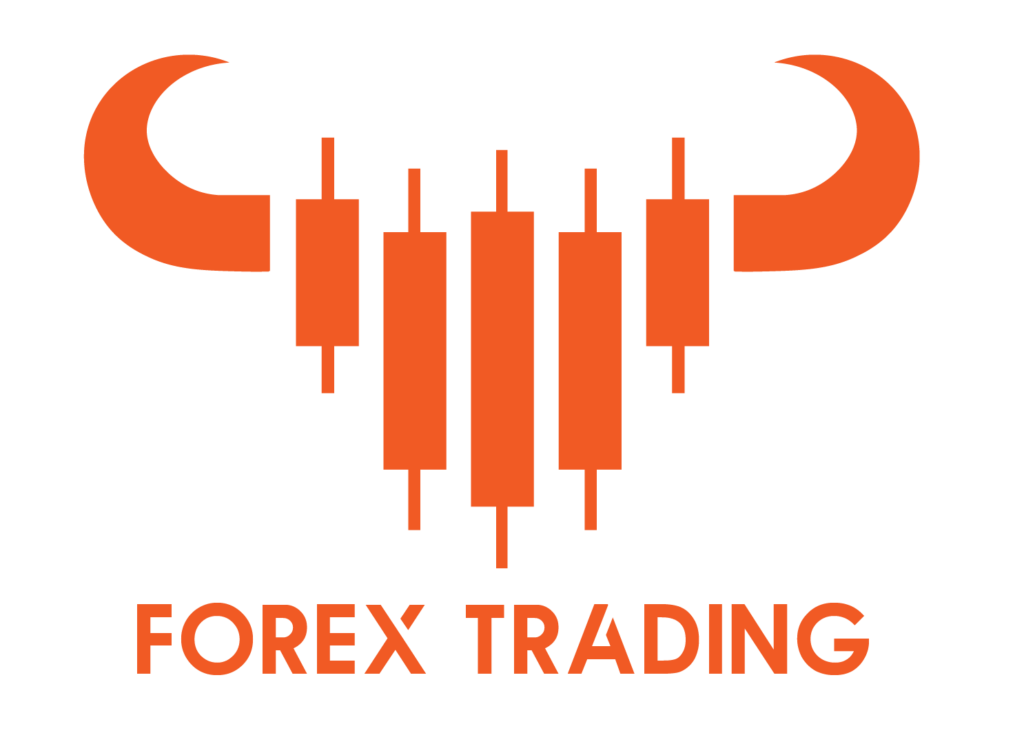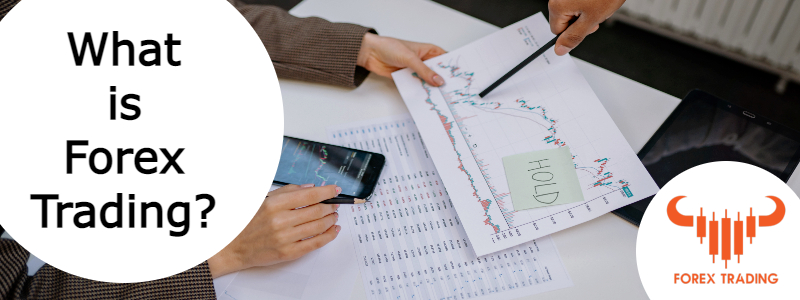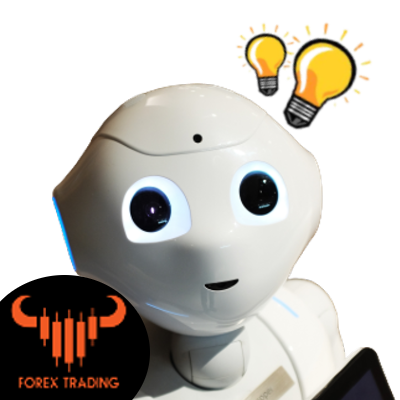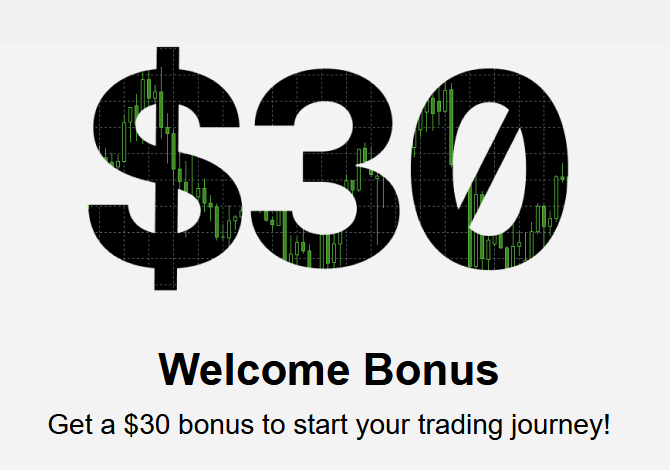Forex trading is the exchange of official global currencies through Forex brokers and online trading platforms and it is one of the biggest markets in the world. So, What is Forex Trading? Let’s find out.
How are currencies traded?
Currencies are always traded in pairs. There are 3 categories of currency pairs, each with different liquidity levels, spreads and performance trends.
The pair consists of the currency you are buying and the currency you are selling. Usually, the currency you are buying should outperform the currency you are selling.
For example, if you buy the USDZAR, you are betting that the Dollar will outperform the Rand. If you sell this pair, your bet is that the Rand will outperform the Dollar.
The above is an example of an exotic pair because the ZAR is not a major currency.
The basic process of trading currencies is researching which pair you would like to trade with, analyzing the market you are trading in and the available quotes, and then you will pick a position and either BUY or SELL your pair.
What is the history of Forex trading?
The foreign exchange market was created in the 1930s by the Bretton Woods Accord in an attempt to give countries an opportunity to restabilize after the wars, but this initiative collapsed after about a decade.
This led to the development of the Free-floating System, whereby exchange rates were based on the supply and demand of currencies, and governments could participate in the markets to influence the exchange rates. This appeared to be in favour of the USD.
In 1985, the Plaza Accord was agreed upon and the USD was depreciated. During the 1990s, the Maastricht Treaty was signed, and the EU was established.
For the years that followed, only banks and investors were able to buy and sell currencies and the markets were only accessible by individuals with a high net worth.
Today, more than 9 million traders can exchange currencies online using innovative platforms with advanced tools and support from Forex professionals, earning profits as retail traders in a marketplace that operates 24/5.
Is Forex the world’s largest Financial Market?
Forex markets are the largest and most active marketplaces in the world, with over 9 million traders and $6 trillion being traded every day.
Many global players participate in the Forex market, including banks, investment managers, multinational corporations and individual retail investors.
More trades are made daily in Forex markets than in the stock exchange, and with all the advances in technology and software, online trading can now be accessed from anywhere in the world.
This global financial market has evolved into one of the most attractive investment options for millions of people, and innovative platforms and tools have been developed to improve your chances of success. The market is volatile and unpredictable, but massive profits can be made from sudden shifts in prices!
How does the Forex marketplace work?
The Forex marketplace never sleeps. When the trading day ends in London, it begins again in Tokyo. This makes it possible for traders to be active around the clock, whether they are trading manually or by using automated trading robots!
Forex hubs are situated in major financial centres across the globe, including New York, Hong Kong, Zurich, London, Tokyo, Paris, Sydney, Singapore and Frankfurt.
Despite being managed from different offices around the world, client funds are seldomly kept by brokerages or head offices and instead, they are required by authorities to store these funds in segregated bank accounts to ensure that the funds are always safe.
There is also no centralized control over the Forex market and currencies are exchanged electronically using secure computer networks between traders and brokerages across the globe.
What are the risks of Forex trading?
There are two major risks associated with trading in Forex markets and the dangers of using unregulated brokers and trading without understanding how Forex trading works, can have serious financial consequences. Choosing the right Forex broker and educating yourself should be your first priority.
Once you have chosen your broker, start by using a demo account and apply the knowledge you learn while practising. This is a risk-free alternative that still gives you an opportunity to experience the thrill of trading, without losing any money!
The risk of unregulated brokers
The Forex marketplace is created by a network of banks, known as the interbank market, that trades currencies amongst themselves. They have established sets of rules to follow to ensure that all banks and brokerages are regulated and operate according to international standards, and these markets are highly regulated and credible.
However, Forex markets are not regulated by a central body and are required to register for licenses and comply with interbank market standards to ensure transparency and the security of clients’ funds.
The risk of not understanding Forex trading
Learning how to trade forex involves a steep learning curve. There are many complex concepts to grasp, with unfamiliar terminology and a lot of advanced tools to use.
Not only do you need to know what types of charts there are, but you need to understand how to analyze and read them. You also need to know what impact price movements will have on currencies and how economies influence the movements and the exchange rates of currency pairs.
What are currency pairs?
When you enter the Forex market, you will be trading currencies in pairs. The pair consists of the currency you want to buy, and the currency you plan to sell. When choosing pairs, you should compare the spreads and pips available before making trades.
For example, if you choose the currency pair EURUSD, you are hoping that the Euro will increase in value compared to the Dollar.
The pair consists of a base currency (EUR) and a quote currency (USD), where the base currency will increase or decrease against the quote currency and buying one unit of the base currency will cost a value equivalent to the exchange rate (in the quote currency) of the pair.
Most of the time, traders lean towards major currency pairs because of their stability and liquidity. However, the volatility of minor and exotic currencies may create exciting investment opportunities!
Depending on your trading style, the way you trade may differ based on the times you choose to trade, which base currencies you choose and the types of spreads you choose.
- For example, if you choose the currency pair EURUSD, you are hoping that the Euro will increase in value compared to the Dollar.
- The pair consists of a base currency (EUR) and a quote currency (USD), where the base currency will increase or decrease against the quote currency and buying one unit of the base currency will cost a value equivalent to the exchange rate (in the quote currency) of the pair.
- Most of the time, traders lean towards major currency pairs because of their stability and liquidity. However, the volatility of minor and exotic currencies may create exciting investment opportunities!
- Depending on your trading style, the way you trade may differ based on the times you choose to trade, which base currencies you choose and the types of spreads you choose.
How does Forex Quoting work?
Quoting forms the basis of reading currency pairs and it is an expression of the price of one currency (base currency), in relation to another (the quote currency). When working with currency pairs, you will also be dealing with bid and ask prices.
The bid price is not the amount you are willing to bid on purchasing a currency pair but refers to the amount a broker is willing to buy or sell a currency pair for.
This may confuse you at first, but all this means is that you will pay what the broker is asking if you are buying, and pay what the broker is bidding if you are selling!
What is a Spread in Forex?
Forex spreads are measured as a Percentage in Point (pip) and a spread is the difference between the Bid and Ask price. A pip is the smallest movement an exchange rate can make based on market activity. Spreads give you an indication of market conditions.
The wider the spreads, the greater the difference between the Bid and Ask prices, indicating a market with high volatility and low liquidity. Tighter spreads carry minimal risks and indicate that a market has higher liquidity and less volatility.
The smaller the difference between the Bid and Ask price, the tighter the spread!
What are Forex Instruments?
Forex instruments are the mediums used to trade in financial markets. There are two main categories of Forex instruments, namely Currency Agreements and Derivatives. Essentially, these instruments provide different ways of trading currencies, which can be done through Options, Futures, Swaps, Spots, ETFs and Forwards.
Spot Forex:
Also referred to as cash trading, these Over-the-Counter (OTC) transactions are processed and delivered within 48 hours. The actual currency is purchased over short timeframes and is often used for speculative trading by financial institutions, banks and hedge funds.
The characteristics of Spot Forex are the following:
- Currencies are exchanged directly
- Always cash, no contracts
- No interest is charged on transactions
- Processed faster than all other transaction instruments
CFD:
Trades can be made without owning currencies, using contracts that show the price movements of financial assets. This form of Forex trading is known as Contract for Difference trading and is commonly used with commodities, bonds, shares, indices and cryptocurrencies.
Profits are made by trading on price movements instead of purchasing the actual currency. CFD trading may bear the least risk because no money is spent on buying assets, but profits can still be made because the prices are always moving!
Swap:
Forex Swapping is a form of Forward trading and can either be based on paying interest rates on loans or on exchanging currencies on a predetermined future date, based on negotiations made on currencies over several years between two traders.
Essentially, two parties will agree upon a loan with interest rates. When the swap is initiated, the principal amounts are exchanged based on the spot rates and then the transaction is reversed at the chosen date.
What is Hedging in Forex?
There are different types of hedging, but the most common method is Direct Hedging, where you buy and sell the same currency pair simultaneously. Your timing will be critical because despite having zero profit initially, you will make a profit if you close your trade at the right moment!
The direct or simple hedging method is used mostly by expert traders, but it is a reliable way of reducing your risks. For this to work, you need to know how to respond to market timing and swings because hedging is a means of safeguarding your funds when markets are volatile.
You can also hedge by trading the opposite of what you traded initially, instead of closing the first trade. This will give you an opportunity to profit from closing the second trade when the markets do not move in favour of the initial trade.
Regardless of the type of hedging you prefer, it can be combined with Stop Losses to control and manage the way you trade, reducing your exposure to risks.
What is leverage in Forex trading?
Leveraged trading is when capital is borrowed from brokers to enter markets with more favourable opening positions. Forex brokers offer up to 500 times the initial investment in some cases, meaning that you can open positions with 500 times the original amount, increasing your risk and profitability significantly.
Approaching the market this way is a form of margin-based trading and you are indebted to the broker, as your creditor. Most regulated brokers will only offer leverage if they know that they provide the tools to manage leverage risks responsibly.
The leverage you want will depend on your trading strategy and the volume and frequency of your trades. It is essential to use all the risk management tools available if you choose to trade using leverage!
How do I begin trading Forex?
Beginners should find Forex brokers that provide educational material, training tutorials, support and demo accounts. When you start trading, make sure you don’t use real money until you understand how it works. Always consider the following when choosing a Forex broker:
Is the broker regulated?
Forex markets are not regulated by a centralized authority, but a number of governmental bodies and independent financial authorities from around the world have agreed to set standards that Forex brokers are encouraged to adhere to.
Using a regulated brokerage means that you will be protected from fraud and the broker will be required to be audited by recognized institutions and operate with complete transparency and ethical conduct.
Supervisory bodies have been formed in different jurisdictions, with the most popular being the FCA, ASIC and FSA.
What standard of service is provided?
Choosing a brokerage that provides reliable customer support and comprehensive educational resources, is essential for beginners. The broker should also be compatible with major trading platforms, such as MetaTrader or cTrader, or alternatively, it should have an equivalent proprietary platform.
You should avoid platforms with low-performance ratings and pay careful attention to feedback on the response time to queries, support resources and tools for traders, availability of customer service teams and the usability of the broker’s website and supported platforms.
Accounts offered by the brokerage should ideally have low spreads, high liquidity, fast executions and low trading fees, with several payment options and methods.
What is the cost of trading?
The costs associated with Forex trading are commission fees, deposit and withdrawal fees, minimum deposit amounts, inactivity penalties, leveraged trades and rollover fees. Your Forex budget should cover these costs and you should choose a broker that offers account types and pricing structures that align with your strategy and budget.
Choosing the right brokerage will require research and comparisons of their pricing models, and you should also confirm the banking costs of your selected financial institutions, as they may vary from one country to another.
Another important consideration is the base currencies supported by your chosen broker and the corresponding exchange rates. Some brokers only support USD, whereas others support up to 10 currencies per account.
What is the minimum deposit?
A minimum deposit fee will be required to activate your live trading account and it will be used as the capital you start trading with. If you are new to trading, finding a brokerage with a low minimum deposit may expose you to fewer risks.
What types of spreads are offered?
The spread threshold needs to be crossed before currency pairs will produce profitable trades and pips should be small. Tighter spreads indicate that the market has higher liquidity.
What commission fees are charged?
Forex brokers will either make their profits through spreads or commissions, or both. High commission fees will increase your cost of trading but may be reduced with increased trading volumes. Some brokers offer commission-free accounts.
What products and markets are offered?
The Forex broker you choose should provide access to liquid markets with a variety of instruments, and must allow trading with major, minor and exotic currency pairs. You should be able to use popular trading platforms, like MetaTrader, or have access to an alternative proprietary platform with the same functionality.
If you choose a brokerage with advanced trading tools, you need to ensure that they also provide sufficient educational resources to enable you to use those tools effectively.
Another important consideration is the instruments offered by the brokerage. If you plan to diversify your portfolio, you will need to find a broker that allows trading with indices, commodities, metals, stocks, bonds, ETFs, Forex and cryptocurrencies.
Which trading tools are available?
Trading tools and features differ from one broker to the next. Some of the most popular Forex trading tools are economic calendars, pip calculators, currency correlation tools, spread comparison tools, time zone converters, volatility calculators and trade journals. You should also research the available analysis and research tools.
Some brokers will offer unique CopyTrading functionality and tools, while others might focus more on enabling customized strategies and independent research and analysis. Most brokers should provide access to trading alerts and Stop Losses.
Familiarising yourself with a trading strategy will help you to find a broker that offers the tools needed to meet your specific requirements.
What are your needs as a trader?
As you develop your trading style and refine your trading strategy, your trading needs might change. The needs of a new trader will also differ from those of an experienced trader, and you might find that you need more support and less advanced trading tools, or that there is plenty of educational resources but not enough tools.
Your needs also depend on your financial capacity, and the brokerage you choose should align with your trading budget.
Brokers have created many different types of accounts based on trading styles and strategies, but it is up to you to find a brokerage that has the right account for you!
How do I choose a Forex trading platform?
When you choose a Forex broker, pay careful attention to the information provided on the website. Check for licenses and regulations, pricing structures and fees, platforms and tools, and reviews from other customers.
You will also need to consider the platform’s analysis capabilities and features, and the types of educational resources provided.
A major consideration should be the costs of trading with the chosen broker and the types of instruments offered and platform compatibility.
What are the pros and cons of Forex trading?
| ✔️Pros | ❌Cons |
| The market can be accessed by anyone | Some markets are volatile |
| The option to trade using leverage | Greater risks for small volume traders |
| Potential for quick profits | The decentralized control of the market |
| Short selling is easy | Fewer residual returns |
| Some markets are extremely liquid | Potentially larger losses with greater capital |
| Technical strategy and analysis tools | Intense competition as an individual trader |
| Prices are difficult to manipulate internally | May be tempting to trade all day |
| Fewer fees and commissions | No centralized exchange |
| Simple tax rules | High-Risk factors |
| Automated trading options | |
| Operates 24/5 |
What are the popular Forex trading strategies for beginners?
Forex trading strategies are techniques, tools and methods used in a specific way, in response to the specific market conditions or sudden price movements. Strategies differ depending on whether they are short, medium or long term, and will be based on Fundamental and Technical Analysis, market news and economic indicators.
Forex grid strategy:
Buy and stop orders are used and stop orders are sold to earn profits from natural movements in markets
Forex scalping:
Trades are opened within a few seconds or hours, and currency pairs are sold in short timeframes
Intraday trading:
A form of scalping, where traders focus on major market sessions and daily price trends, and trades are opened within one to four days at a time
Forex hedging:
A method for managing risks, where trades are opened in opposite market positions as a means of safeguarding against potential losses
Swing trading:
trades are opened and checked every few days or hours, with the focus on larger price movements over the medium-term
Forex martingale strategy:
For every trade lost, double the investment is made for future traders to recover losses with successful trades
Forex trading tips for beginners
If you are new to trading, you might be overwhelmed by all the new concepts and tools of Forex trading. You can familiarise yourself with the theory of trading by finding brokers that offer comprehensive training material and educational content, and you can practice trading by using a demo account.
- Use demo accounts before investing real money
- Research Forex topics, watch the market news and attend educational webinars
- Choose a training program and use educational resources
- Try to simplify trading for yourself and take it at your own pace
- Remember that trades stay open until they are closed
- Avoid volatile markets if you are not ready yet
- Learn how to read charts and follow the trends
- Keep records of your trading journey and research
- Choose a strategy and develop your trading style
- Learn from your mistakes and don’t give up too easily
- Don’t leverage your trading unless it’s necessary and you’ve done your research
Conclusion
So, What is Forex Trading? Forex trading is the buying and selling of currencies on global online exchanges.
Currencies are usually traded through brokers and platforms like MetaTrader 4 and 5. If you are new to trading, check out our Best Forex Trading Demo Accounts.
We recommend using a beginner-friendly trading platform that offers plenty of educational resources, customer support and demo accounts.
You should start with small trades and choose a trading strategy that you will focus on for a few months.
Identify your trading risks early in your trading journey. Once you gain some experience as a trader, you can begin experimenting with more advanced trading tools, try new trading strategies and focus on diversifying your portfolio.
But for now – let’s just focus on the basics.
Good luck with your trading!
Table of Contents
Toggle




